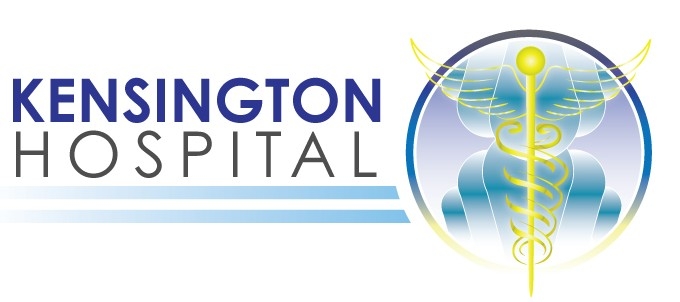Comprehensive Care at Kensington Hospital Detox: A Holistic Approach to Addiction Recovery
Introduction
Addiction to substances such as drugs and alcohol is a complex medical condition that affects millions of individuals worldwide. Recognizing the multifaceted nature of addiction, Kensington Hospital Detox offers a comprehensive care program designed to address the physical, psychological, and social aspects of recovery. This essay explores in detail the holistic approach taken at Kensington Hospital Detox, examining each component of their treatment philosophy and how it contributes to supporting individuals through detoxification and beyond.
Understanding Addiction and Detoxification
Addiction is characterized by compulsive drug-seeking and use, despite harmful consequences. It fundamentally alters the brain’s functioning, leading to persistent changes in behavior. Detoxification, or detox, is the initial phase of addiction treatment aimed at safely managing withdrawal symptoms when a person stops using substances. At Kensington Hospital Detox, detoxification is viewed as the critical first step towards recovery, laying the foundation for ongoing rehabilitation and maintenance of sobriety.
Components of Comprehensive Care
1. Medical Supervision and Safety
Central to Kensington Hospital Detox’s approach is the provision of medical supervision by trained professionals. Withdrawal from substances can pose significant health risks, including seizures, dehydration, and cardiovascular complications. Therefore, 24/7 monitoring ensures immediate intervention in case of emergencies and medical stabilization during the detox process. This continuous care minimizes the risks associated with withdrawal and enhances patient safety.
2. Psychiatric and Psychological Support
Many individuals struggling with addiction also face underlying mental health issues such as depression, anxiety, or trauma. At Kensington Hospital Detox, psychiatric professionals conduct thorough assessments to identify co-occurring disorders. Integrated treatment plans are then developed, combining pharmacotherapy with evidence-based therapies like cognitive-behavioral therapy (CBT) and dialectical behavior therapy (DBT). These therapeutic interventions aim not only to address addiction but also to manage mental health symptoms and improve overall psychological well-being.
3. Nutritional Counseling and Physical Health
Proper nutrition plays a crucial role in the recovery process, yet it is often overlooked in addiction treatment. Substance abuse can lead to nutritional deficiencies and compromised physical health. Kensington Hospital Detox employs registered dietitians who work closely with patients to create personalized nutrition plans. These plans emphasize balanced meals that support physical recovery, restore nutritional balance, and promote overall wellness. Educating patients about the importance of nutrition empowers them to make healthier choices and reinforces the connection between physical health and addiction recovery.
4. Therapeutic Interventions
Therapy is a cornerstone of comprehensive care at Kensington Hospital Detox. Individual and group therapy sessions provide a supportive environment where patients can explore the root causes of their addiction, gain insight into maladaptive behaviors, and learn effective coping strategies. Group therapy, in particular, fosters peer support and encourages patients to share their experiences, reducing feelings of isolation and stigma. Therapists utilize a variety of approaches tailored to each patient’s needs, including motivational interviewing, trauma-informed care, and relapse prevention techniques.
5. Medication-Assisted Treatment (MAT)
Medications may be utilized during detoxification to alleviate withdrawal symptoms, manage cravings, and support long-term recovery. Under the guidance of medical professionals, MAT combines FDA-approved medications with counseling and behavioral therapies. MAT has been shown to significantly improve treatment outcomes by reducing the risk of relapse and supporting sustained abstinence. Kensington Hospital Detox integrates MAT into individualized treatment plans, ensuring that medications are prescribed judiciously and monitored closely to optimize effectiveness and safety.
6. Educational Programs and Skills Development
Education is a powerful tool in empowering individuals to take control of their recovery journey. Kensington Hospital Detox offers comprehensive educational programs that cover various aspects of addiction, recovery, and life skills development. Topics may include understanding the disease model of addiction, identifying triggers and cravings, building healthy relationships, and enhancing self-esteem. By equipping patients with knowledge and practical skills, these programs promote personal growth and resilience, preparing individuals for the challenges they may encounter post-detox.
7. Aftercare Planning and Continuum of Care
Successful detoxification marks the beginning rather than the end of recovery. Recognizing the need for ongoing support, Kensington Hospital Detox prioritizes aftercare planning as an integral part of their comprehensive care model. Discharge planning begins early in the treatment process, involving patients, their families, and a multidisciplinary care team. Aftercare plans are tailored to meet the unique needs of each individual and may include referrals to outpatient counseling, sober living arrangements, support groups (such as Alcoholics Anonymous or Narcotics Anonymous), vocational training, and community resources. By facilitating a smooth transition from detox to long-term recovery support, aftercare planning enhances the likelihood of sustained sobriety and improved quality of life.
Conclusion
In conclusion, Kensington Hospital Detox exemplifies a holistic approach to addiction recovery through its comprehensive care program. By addressing the physical, psychological, and social dimensions of addiction, this facility empowers individuals to reclaim their lives and achieve lasting sobriety. Through medical supervision, psychiatric support, nutritional counseling, therapeutic interventions, medication-assisted treatment, educational programs, and aftercare planning, Kensington Hospital Detox sets a standard for compassionate, evidence-based addiction treatment. As our understanding of addiction evolves, so too does the need for integrated approaches that recognize the interconnectedness of physical health, mental well-being, and social support systems. Kensington Hospital Detox stands at the forefront of this paradigm shift, offering hope and healing to individuals and families affected by addiction.
In essence, comprehensive care at Kensington Hospital Detox embodies a commitment to treating the whole person, not just the symptoms of addiction. By fostering a supportive and nurturing environment, this facility empowers individuals to embark on a journey of recovery, resilience, and renewed purpose.
This comprehensive essay outlines the various facets of Kensington Hospital Detox’s approach to addiction recovery, providing a detailed exploration of how each component contributes to the holistic care of individuals undergoing detoxification.

